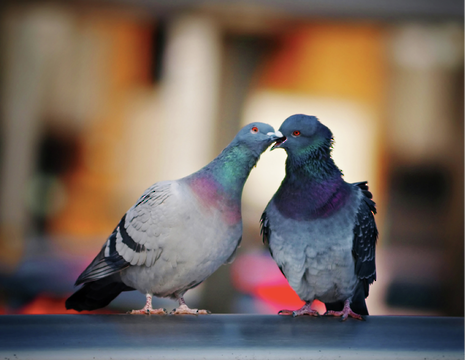Preview: Lovesong
Georgie Henley delves into the complexities of the show she is assistant directing, from physical theatre to casting chemistry

When a person watches or reads Lovesong for the first time, they are sure to see at least a snatch of conversation or a moment that reminds them of their parents, their grandparents, or perhaps even their relationship with their own partner.
I hadn’t heard of the play before I applied to assistant direct, even though I was aware of Abi Morgan’s work, and had done some research on Frantic Assembly when I acted in the Penelopiad in Michaelmas term. What struck me the most on my first read was the lack of communication in the play between the two couples and the fact that only once do they say "I love you".
The truth is that the play is not really about love at all, not completely. It examines a youthful relationship, with all of its complexities, arguments, moments of passion, and then shows the audience the same couple over forty years later. The question, which Sarah (the director) and I wanted to explore is what is lost, but also what remains, what grows.
We were lucky enough to create our own seamless cast, after putting them through a gruelling couple of days of recalls which demanded improvisation, dialogue, movement workshops and kissing (intended as an icebreaker but possibly the most awkward thing I’ve ever had to witness). Chemistry was of the utmost importance, as it had to be believable that these two people were inexplicably drawn together. Our couples did not disappoint: not only did they develop an incredibly sure sense of character from the very beginning, but they also rose to the challenge of the play’s physical theatre element.
The movement has been a collaborative creation, amazing given that our cast were almost completely new to the idea of creating choreography. With the help of Rose Reade, whose strength is working with actors to bring out movement that is both spontaneous yet polished, the actors were able to experiment with everything from miniscule hand caresses to sweeping lifts. A lot of people ask me if physical theatre is a kind of dance, to which I answer no, not in Lovesong. Our philosophy was to take a particular emotion or feeling and express it through physicality; body language in the most literal sense. At times it’s the only way that Billy and Maggie or William and Margaret can say "I love you".
Lovesong shirks the stereotype of a couple who are brought together by the omnipotent power of love – they are challenged by circumstance, time, life, death and have to hold on to what’s left when a young love changes. The longing, the memories, the music. But what else? This incredibly talented cast and crew will create a week of shows that will move us but, above all, make us remember.
 News / Fitz students face ‘massive invasion of privacy’ over messy rooms23 April 2024
News / Fitz students face ‘massive invasion of privacy’ over messy rooms23 April 2024 News / Cambridge University disables comments following Passover post backlash 24 April 2024
News / Cambridge University disables comments following Passover post backlash 24 April 2024 Comment / Gown vs town? Local investment plans must remember Cambridge is not just a university24 April 2024
Comment / Gown vs town? Local investment plans must remember Cambridge is not just a university24 April 2024 News / Students organise Cambridge’s first female and non-binary club night25 April 2024
News / Students organise Cambridge’s first female and non-binary club night25 April 2024 News / Activists target Trinity chapel over Israel links26 April 2024
News / Activists target Trinity chapel over Israel links26 April 2024





